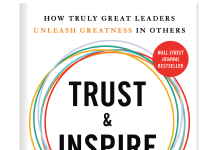Their coffee costs twice as much. The donuts are not as good. They force words like “Grande” and “Venti” into my vernacular. And I don’t actually think their coffee tastes better.
Yet, I still choose Starbucks over Dunkin’ Donuts.
A long, long time ago, I had great affection for Dunkin’ Donuts. I remember the really cool diner-like counter I sat at with my dad and sister every week. We ate Boston Crèmes and drank hot chocolate. I felt happy there and liked seeing the Sunday morning regulars: other dads with their kids, the after-church crowd, truck drivers taking a break. Oldies played on the radio and the lighting always made it seem cozy.
But then that changed. Dunkin’ lost its allure and I turned my back on a place I once loved.
They changed the little things that mattered to me.
They got rid of the counters and added harsh fluorescent lights. Their color scheme of pink, orange, and brown became dated and untrendy. They adopted the tagline, “America Runs on Dunkin”©. I run 17 hours a day—I don’t want to run when I get a cup of coffee. I want to slow down for a moment.
Starbucks allows me to do that. The wood tables, brick walls, and comfy leather club chairs make me feel welcome and relaxed. The lighting is dim and calm. And the nooks and crannies offer a perfect place to sneak away for a few minutes on a Sunday to read a book.
The taste of the coffee has never been paramount for me—it comes down to how a place looks and makes me feel.
In corporate America, people give us opportunities, or not, based on this same criteria. They rarely give us feedback on the “little” things that matter—like how we look or how we make them feel. But they discriminate based on these things—silently. That’s why we, at Exec|Comm, call them “silent discriminators.”
Why not tell people about these little things? Probably because many of us feel the feedback is too touchy, too sensitive, and too personal. For example, you may think, “He shows no energy. I don’t think he is invested in working with our team” or “She says, ‘like’ and ‘ya know’ a lot. It makes me question how smart she is.”
You most likely spend time on developing your technical competence. You know how to do your job, and you’re dedicated to doing it well. But as you move up the corporate ladder, you have to develop the soft skills or it becomes harder to advance in your career.
You are too good, too smart, and too talented to lose out because of silent discriminators. Don’t let the “little things” that matter prevent you from becoming a success.
Here are some unspoken areas of judgment:
How you look: How big of a role does non-verbal communication play in forming first impressions? What common threads do leaders have when it comes to appearance?
How you speak: How do you make sure you sound confident and credible? Why should your audience believe you?
How you write: Why let someone make a judgment about your abilities based on a mispelled word or lack of punctuation? And, yes, I know how to spell “misspelled,” but I bet you silently discriminated against me when you saw that mistake, right?
I hope someday Dunkin’ Donuts gets a new look and feel so it can find its way back into my good graces. I miss those Boston Crèmes. But for now, I am drinking a $6, Grande, extra-hot, no-foam, nonfat, sugar-free, mocha latte—and I am OK with that.
Rachel Lamb is a consultant at Exec|Comm, a communication skills training firm based in NYC. She helps clients across the globe present, lead meetings, and write with confidence and passion. She can be reached at rlamb@exec-comm.com or 212.252.5863.




